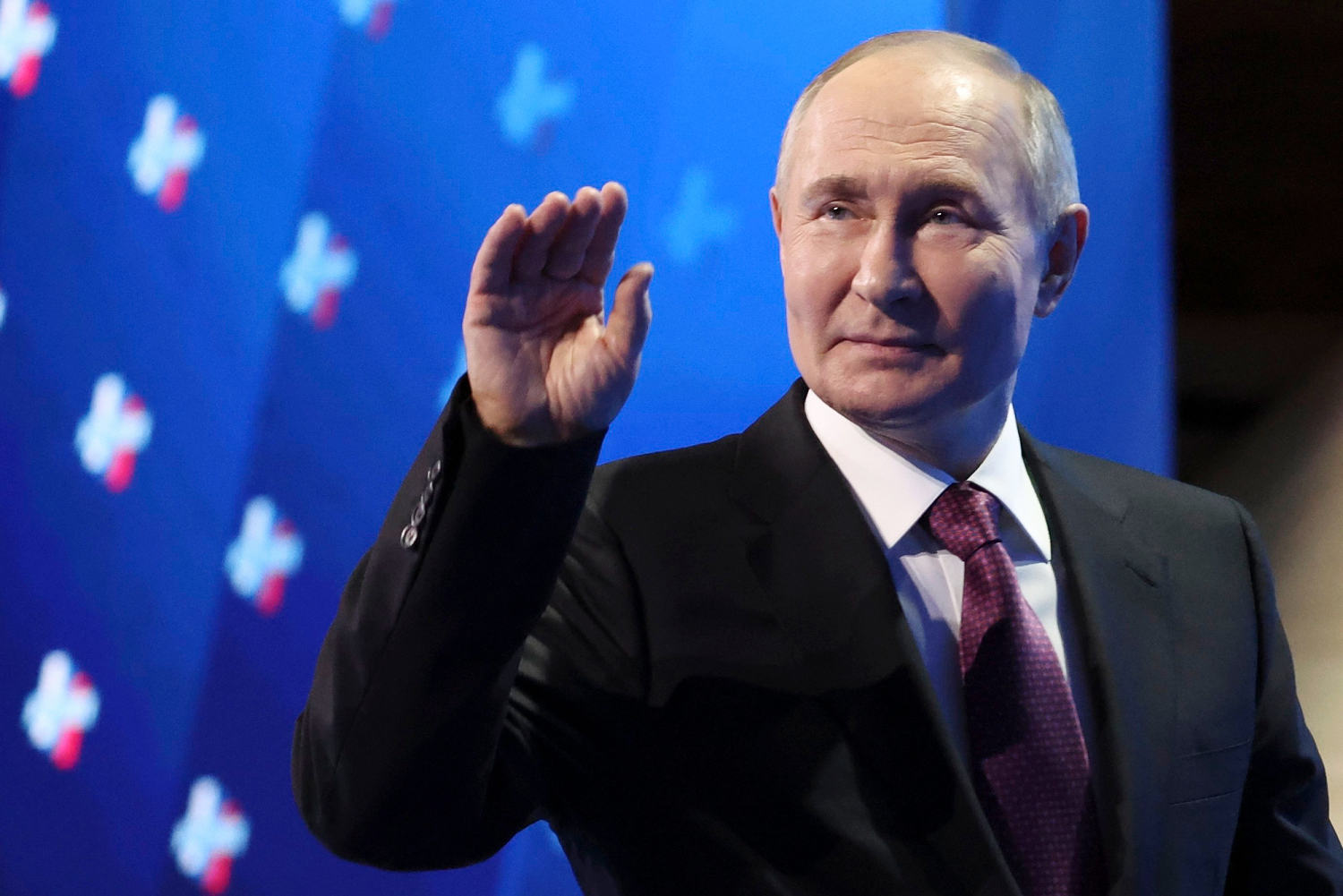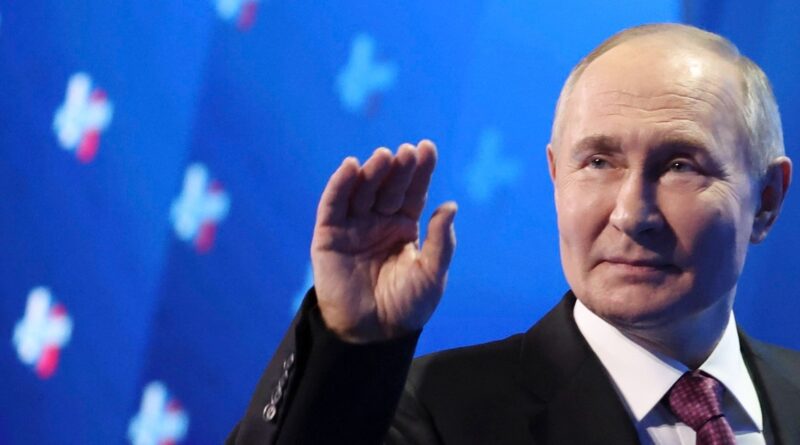Russia is trying to exploit America’s divisions over the war in Gaza

Russia is seeking to exploit America’s divisive debate over Israel’s offensive in Gaza through overt and covert propaganda, with the aim of aggravating political tensions in the U.S. and tarnishing Washington’s global image, according to two sources familiar with U.S. intelligence on the matter.
In its ongoing information war against the United States, Russia has shifted its focus in recent months to the Israel-Hamas conflict, seeking to inflame existing divisions in the West and to portray Washington as fueling the violence, the sources said.
The effort includes artificial intelligence, fake social media accounts, a long-standing tactic used by Moscow, as well as a spike in propaganda from Russian state media. The sources declined to share examples of Russian-generated bots on social media to avoid revealing U.S. intelligence-gathering methods.
Russia has repeatedly denied accusations it spreads disinformation abroad. A spokesperson for the Russian Embassy did not immediately respond to a request for comment.
The campaign is the latest example of Russia’s bid to seize on existing political rifts in America and other NATO countries, according to the sources and independent researchers.
“It’s an opportunity, again, to undermine the West,” said Bret Schafer, who tracks Russian and other propaganda at the German Marshall Fund of the United States’ Alliance for Securing Democracy.
For more on this story, tune in to “NBC Nightly News with Lester Holt” tonight at 6:30 p.m. ET/5:30 p.m. CT or check your local listings.
The information offensive is also a way for Russia to divert attention from its invasion of Ukraine and portray itself as a champion of the Palestinians, Schafer said. “They have pivoted away from trying to message around their own war to focusing on this one,” he said.
Writing about pro-Palestinian protests at American college campuses, the Russian-state run Sputnik recently suggested “the threat of deadly police violence against demonstrators looms over the current protests” and reminded readers that four students were killed during the Vietnam era in an anti-war protest at Ohio’s Kent State University.
Another headline from Sputnik’s Facebook account questioned how politicians were responding to the campus protests: “‘Land of the Free’? How US Lawmakers Restrict Students’ Right to Peaceful Protest: US lawmakers have once again demonstrated where their sympathies lie in the Israeli-Palestinian conflict by cracking down on student protests against the bloodbath in the Gaza Strip.”
In the first seven weeks after Hamas’ Oct. 7 attack on Israel, posts on Facebook from Russian state media, pro-Russian commentators and Russian diplomats increased dramatically — by 400 percent, according to the Alliance for Securing Democracy.
Some of the posts describe dark conspiracies involving Ukraine. Russia’s RT outlet, in an Arabic language post, alleged that Ukrainian mercenaries were fighting with Israeli forces in Gaza. Pravda quoted Dmitry Medvedev, a former Russian president and prime minister, alleging that Hamas militants were using NATO weapons that had been provided to Ukraine.
Moscow is targeting Europe as well in this effort. In November, France accused a Russian-linked network of bots of stoking antisemitism by amplifying images of Stars of David graffiti on buildings in Paris with 2,589 posts on the X social media platform.
“This new operation of Russian digital interference against France testifies to the persistence of an opportunistic and irresponsible strategy aimed at exploiting international crises,” the French foreign ministry said, “to sow confusion and create tensions in the public debate in France and in Europe.”
Discrediting American democracy
A favorite theme of Russian information operations is to paint America as a failing democratic state, according to U.S. officials and researchers.
At an event last week in Washington, Director of National Intelligence Avril Haines said Russia works to denigrate America’s standing in the world, to undermine democratic institutions and processes and to exploit social, political and economic divisions “in our culture and in our society.”
Haines added that the Russians “are quite sophisticated” and are using artificial intelligence tools in their information operations.
U.S. officials and experts say it’s important not to overstate the effect of the propaganda effort on the intense debate over Israel’s campaign in Gaza, or to imply that demonstrations in the U.S. on either side of the issue are being orchestrated in any way by Moscow.
“I think it would be entirely inaccurate to say that the protests that are happening on college campuses, the divisiveness of the debate in Congress and among the public is a result of anything that Russians have done or could do,” Schafer said. “I think it would all be there regardless of whether there were Russian bots and Russian state media messaging.”
Emerson Brooking, a senior fellow at the Digital Forensic Research Lab of the Atlantic Council, a think tank, said reports on propaganda efforts by foreign actors over protest movements needed to be treated with caution.
Allegations of foreign influence “can often be used to delegitimize large and authentic democratic movements in the United States,” Brooking said, adding that some critics of the Black Lives Matter protests tried that tactic citing foreign adversaries’ information operations.
Russia’s bid to amplify divisions over Gaza is also designed to attract more readers to other pro-Russian propaganda content on social media, with the aim of shaping attitudes on the war in Ukraine, experts said.
Russia is also spreading disinformation to damage President Joe Biden and his fellow Democrats in advance of the U.S. election, using fake online accounts and bots, NBC News has reported.
The attacks on Biden are part of a continuing effort by Moscow to undercut American military aid to Ukraine and U.S. support for NATO, experts said.
Russia is also waging a similar campaign in Europe to undermine support for Ukraine. France, Germany and Poland have accused Russia of launching a barrage of propaganda to try to shape the outcome of the European parliamentary elections in June.




